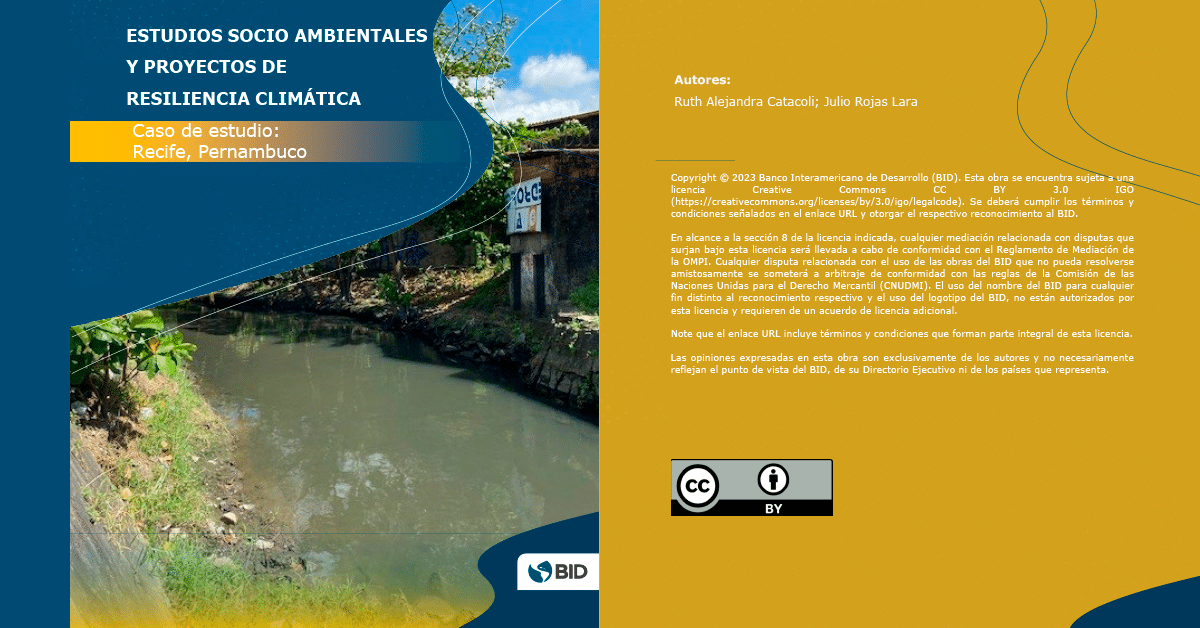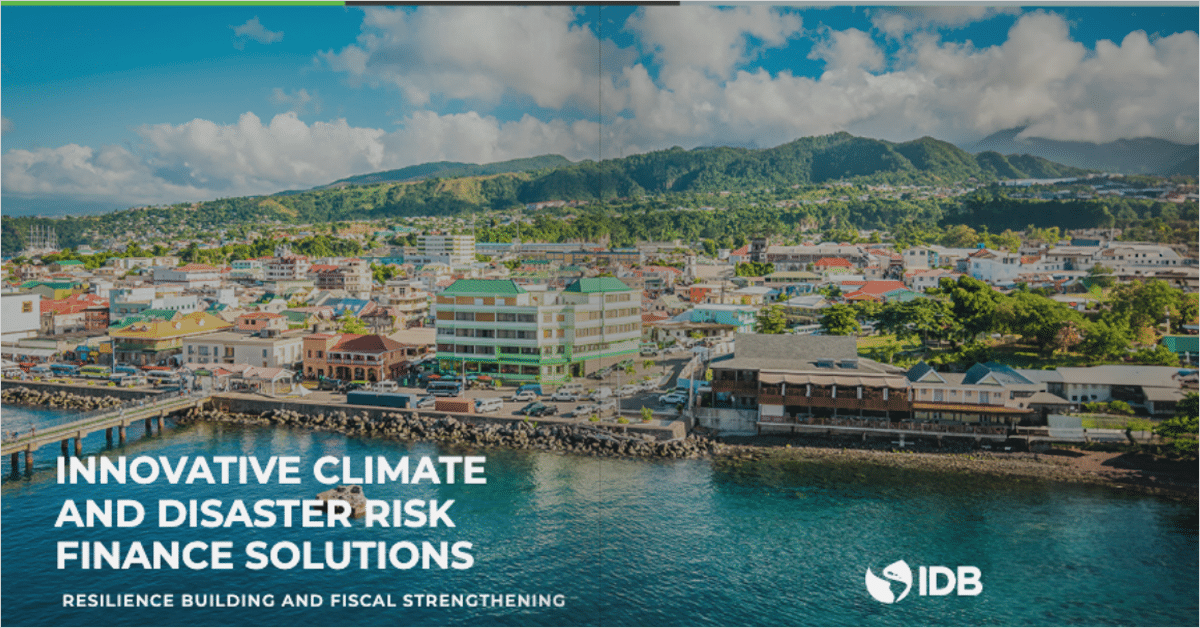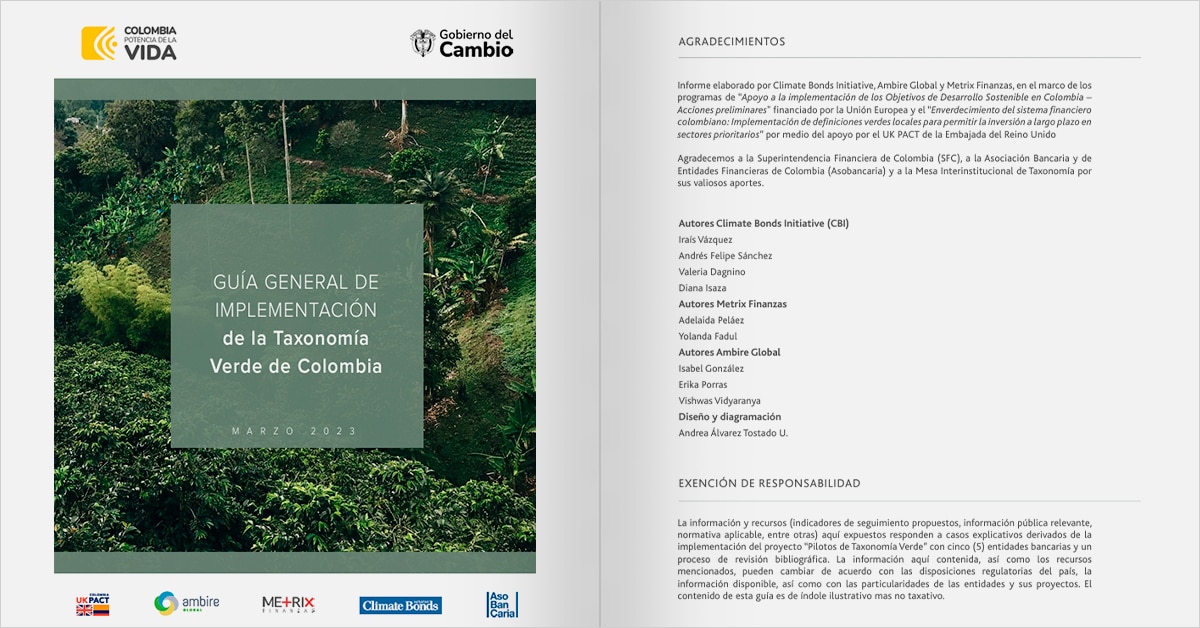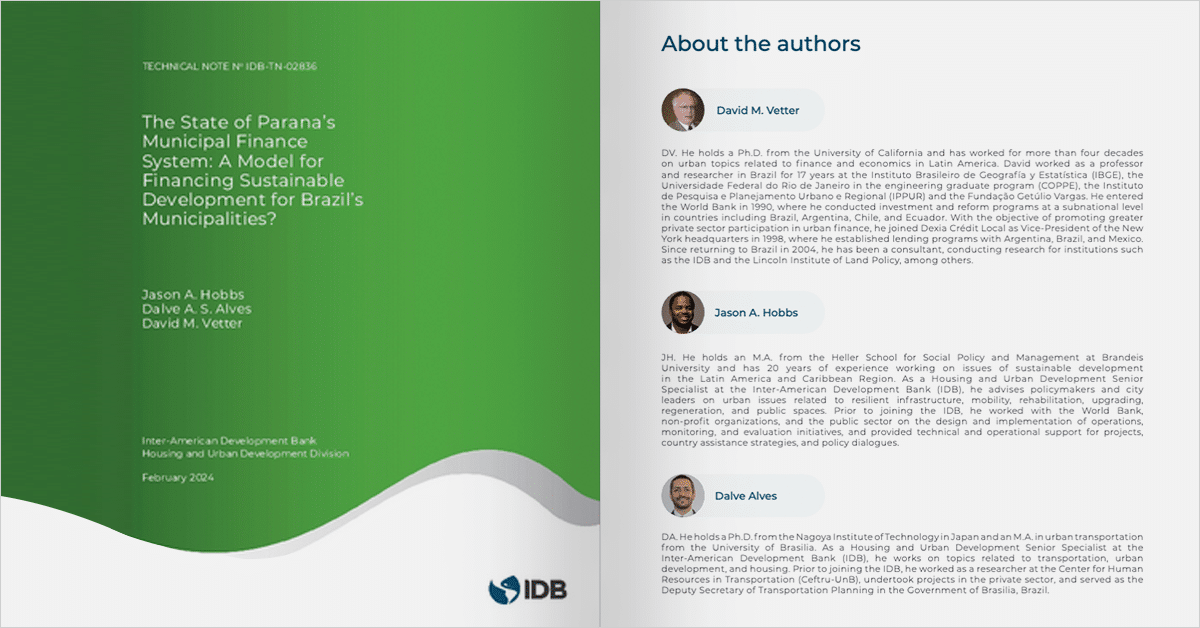- Home
- »
- Publications
- »
- Socio-environmental studies and climate resilience projects: Case study Recife, Pernambuco (Brazil)

Editor/s: IDB
Author/s: Catacoli, Ruth Alejandra; Rojas, Julio
File: Download PDF
In September 2020, the Inter-American Development Bank (IDB) adopted the Environmental and Social Policy Framework (ESPF), which reaffirms its commitment as a partner of Latin America and the Caribbean (LAC) to manage negative environmental and social impacts and risks effects on operations supported by IDB, and establishes 10 new and ambitious Environmental and Social Performance Standards (ESPS).
The Municipality of Recife (State of Pernambuco, Brazil), considered one of the most potentially affected as a result of climate change in LAC, is working in coordination with the IDB on a strategy to reduce the socio-environmental vulnerability of its inhabitants and to improve the resilience of its drainage system. In January 2023, IDB Board approved a 400 million dollars loan for activities that include the relocation of more than 4,000 families and the recovery of Tejípio River floodplains. An Environmental and Social Impact Study (ESIA) was prepared based on a social and environmental risk approach that provided feedback on the design of the urban drainage recovery system. The social and environmental performance of the operation will be managed through an Environmental and Social Management System (ESMS), designed under a Plan-Do-Check-Act scheme.
Socio-environmental studies and climate resilience projects, such as the case study of Recife in Brazil, are tools that contribute to development policies based on the Sustainable Development Goals (SDG) proposed in the 2030 Agenda, as a response to address climate change through the adaptability of populations to this phenomenon.





 Stay updated on the latest trends of Green Finance
Stay updated on the latest trends of Green Finance




